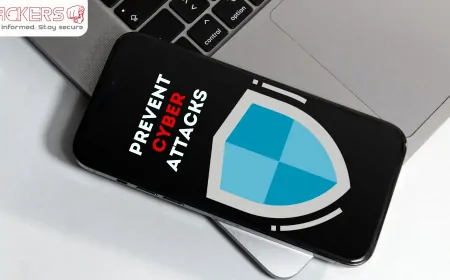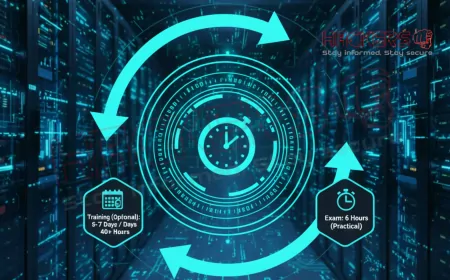How Can You Build a Team for Your Cybersecurity Startup?
Imagine this: You've got a brilliant idea for a cybersecurity startup. Maybe it's a new tool to detect AI-driven threats or a platform that simplifies compliance for small businesses. The tech is exciting, the market is booming, and investors are knocking at your door. But here's the catch none of it matters if you don't have the right people on board. Building a team isn't just about filling seats; it's about creating a group of dedicated experts who can turn your vision into reality while fending off the ever-evolving world of cyber threats. In this blog post, we'll dive into practical steps to assemble a powerhouse team for your cybersecurity venture. Whether you're a first-time founder or scaling up, these insights will help you navigate the process with confidence.

Table of Contents
- Why a Strong Team Matters in Cybersecurity
- Identifying Key Roles for Your Startup
- Developing a Recruitment Strategy
- Effective Interviewing Techniques
- Onboarding New Hires
- Building Team Culture
- Training and Development
- Retaining Top Talent
- Overcoming Common Challenges
- Conclusion
- FAQs
Why a Strong Team Matters in Cybersecurity
In the fast-paced world of cybersecurity, threats don't sleep and neither should your defenses. But technology alone can't protect your startup or your clients. It's the people behind the screens who make the difference. A strong team brings diverse skills, fresh ideas, and the resilience needed to handle breaches, compliance issues, and innovation demands.
Think about it: Cyber attacks are becoming more sophisticated every day. From ransomware to phishing schemes, hackers are always one step ahead. According to recent reports, the global cost of cybercrime is expected to reach trillions by 2025. Your team isn't just a cost center; it's your first line of defense and your competitive edge.
Building the right team starts with understanding that cybersecurity is as much a people problem as it is a tech one. You need individuals who can think like hackers, collaborate under pressure, and adapt to new challenges. Without them, even the best tools fall short. In the sections ahead, we'll explore how to identify needs, recruit talent, and foster growth.
One key reason a solid team is crucial is alignment with business goals. Your cybersecurity startup isn't just about code; it's about solving real-world problems for customers. A well-built team ensures that security strategies support overall business objectives, like scaling operations or entering new markets.
Moreover, a diverse team brings varied perspectives. Women, minorities, and people from different backgrounds can spot blind spots that a homogeneous group might miss. This diversity isn't just nice to have it's essential for innovative problem-solving in a field where threats come from all angles.
Finally, remember that your team represents your brand. In a startup, every hire impacts culture and reputation. Get it right, and you'll attract more talent and clients. Get it wrong, and you could face high turnover or security lapses that damage trust.
Identifying Key Roles for Your Startup
Before you start hiring, you need a clear picture of what roles your cybersecurity startup requires. This isn't one-size-fits-all; it depends on your product, stage, and goals. Start by mapping out your needs based on core functions like threat detection, compliance, and product development.
For a young startup, focus on versatile players who can wear multiple hats. As you grow, specialize. Common roles include a Chief Information Security Officer (CISO) to lead strategy, security engineers for building defenses, analysts for monitoring threats, and ethical hackers (penetration testers) to simulate attacks.
Don't forget support roles like HR for recruitment or sales for client-facing security advice. But prioritize technical expertise early on.
To help visualize, here's a table outlining key roles, their responsibilities, and required skills:
| Role | Responsibilities | Key Skills |
|---|---|---|
| Chief Information Security Officer (CISO) | Oversee security strategy, compliance, and risk management. | Leadership, strategic planning, knowledge of regulations like GDPR. |
| Security Engineer | Design and implement security systems, firewalls, and encryption. | Programming (Python, C++), networking, cloud security (AWS, Azure). |
| Threat Analyst | Monitor networks for threats, analyze data, respond to incidents. | Data analysis, SIEM tools, understanding of malware. |
| Penetration Tester | Simulate cyber attacks to find vulnerabilities. | Ethical hacking, tools like Metasploit, report writing. |
| Compliance Specialist | Ensure adherence to laws and standards. | Knowledge of PCI-DSS, HIPAA, auditing skills. |
This table is a starting point. Tailor it to your startup's focus say, more AI experts if you're in machine learning-based security.
When identifying roles, consider your budget. Startups often start small, so look for generalists who can grow into specialists. Use tools like job description templates from sites like LinkedIn to refine your needs.
Also, think about remote vs. in-office. Cybersecurity talent is global, so embracing remote work can widen your pool.
Developing a Recruitment Strategy
Recruiting for cybersecurity is tough there's a talent shortage. But with a smart strategy, you can attract top pros. Start by defining your employer brand. What makes your startup unique? Highlight innovation, impact, or flexible work.
Use multiple channels: LinkedIn for networking, job boards like Indeed, and specialized sites like CyberSecurityJobsite. Attend conferences like Black Hat or RSA to meet candidates.
Partner with universities or bootcamps for fresh talent. Programs like those from SANS Institute produce skilled grads.
Craft compelling job postings. Avoid jargon; explain terms like "SIEM" (Security Information and Event Management) if needed. Focus on growth opportunities.
Consider diversity initiatives. Organizations like Women in Cybersecurity can help reach underrepresented groups.
Finally, build a referral program. Your current team (even if small) can recommend trusted colleagues.
A good strategy also includes competitive compensation. Research salaries via Glassdoor security engineers might earn $120k+ base.
Don't rush; bad hires cost more. Aim for quality over speed.
Effective Interviewing Techniques
Interviews are your chance to assess fit. Go beyond resumes; test skills and culture match.
Start with phone screens to gauge basics. Then, technical interviews: Use coding challenges or scenario-based questions, like "How would you handle a DDoS attack?"
Include behavioral questions: "Tell me about a time you dealt with a security breach."
Involve the team in interviews for buy-in. Use tools like HackerRank for assessments.
Look for soft skills: Communication is key in explaining threats to non-tech folks.
Avoid bias; use structured interviews with consistent questions.
End with a trial project if possible, paid of course.
Remember, interviews are two-way. Sell your startup's vision.
Onboarding New Hires
Onboarding sets the tone. A smooth process helps newbies contribute fast.
Prepare in advance: Set up equipment, accounts, and a welcome packet.
Day one: Introduce the team, tour (virtual or in-person), and overview company goals.
Provide training on tools and processes. Pair with a buddy for questions.
Include security-specific onboarding: Review policies, conduct background checks.
Set 30-60-90 day goals to track progress.
Gather feedback to improve onboarding.
Good onboarding reduces turnover and boosts productivity.
Building Team Culture
Culture is the glue. In cybersecurity, where stress is high, a positive environment matters.
Foster collaboration: Regular meetings, team-building activities.
Encourage work-life balance: Burnout is common; promote time off.
Celebrate wins: Acknowledge successes like thwarting an attack.
Promote continuous learning: Share articles, host lunch-and-learns.
Lead by example: As founder, show vulnerability and support.
Handle conflicts openly for trust.
A strong culture attracts and retains talent.
Training and Development
Cybersecurity evolves fast; invest in training.
Offer certifications like CISSP or CEH.
Use online platforms: Coursera, Udemy for courses.
Encourage conferences and webinars.
Internal knowledge sharing: Rotate roles or mentorship.
Budget for training; it's cheaper than breaches.
Track ROI: Measure improved performance.
Development keeps your team sharp and engaged.
Retaining Top Talent
Retention is key in a competitive field.
Offer growth: Promotions, new projects.
Competitive pay and benefits: Health, stock options.
Flexible work: Remote options, flexible hours.
Regular feedback: One-on-ones, surveys.
Recognize efforts: Bonuses, shout-outs.
Address burnout: Mental health support.
Exit interviews for insights.
Happy teams stay and perform better.
Overcoming Common Challenges
Challenges abound: Talent shortages, budget limits, remote management.
For shortages, train internally or outsource temporarily.
Budget: Prioritize hires, seek funding.
Remote: Use tools like Slack, Zoom; build virtual bonds.
Diversity: Actively recruit from varied pools.
Scaling: Plan hires ahead.
Adaptability is key; learn from setbacks.
Conclusion
Building a team for your cybersecurity startup is a journey, not a sprint. From identifying roles to retaining talent, each step builds a foundation for success. Remember, your people are your greatest asset—invest in them, and they'll protect and grow your business. Start small, stay focused, and adapt as you go. With the right team, you'll not only survive in the cyber world but thrive.
FAQs
What is the first step in building a cybersecurity team?
The first step is assessing your startup's specific needs, like core functions and gaps, to define key roles.
Why is diversity important in a cybersecurity team?
Diversity brings different perspectives, helping spot unique threats and fostering innovation.
How can I attract top cybersecurity talent?
Highlight your startup's mission, offer competitive pay, and use networks like LinkedIn and conferences.
What skills should I look for in a security engineer?
Look for programming knowledge, networking expertise, and experience with cloud platforms.
Is remote work viable for cybersecurity teams?
Yes, with secure tools and clear communication, remote work can expand your talent pool.
How do I handle a talent shortage?
Train existing staff, partner with bootcamps, or outsource non-core tasks temporarily.
What role does a CISO play in a startup?
A CISO leads security strategy, ensures compliance, and manages risks.
How can I make interviews effective?
Use a mix of technical tests, behavioral questions, and team involvement.
What should onboarding include?
Equipment setup, team intros, training, and clear goals for the first months.
How to build a positive team culture?
Encourage collaboration, celebrate wins, and promote work-life balance.
Why invest in training?
Training keeps skills current against evolving threats and boosts retention.
What are common retention strategies?
Offer growth opportunities, feedback, and benefits like flexible hours.
How to align the team with business goals?
Communicate vision clearly and involve them in strategic planning.
What if my budget is limited?
Prioritize essential roles, seek freelancers, or bootstrap with versatile hires.
How to measure team performance?
Use metrics like incident response time, training completion, and feedback surveys.
Should I hire generalists or specialists first?
In early stages, generalists are better; specialize as you grow.
What tools help in recruitment?
LinkedIn, job boards, and applicant tracking systems like Lever.
How to handle team conflicts?
Address them openly, mediate fairly, and focus on solutions.
Is certification important for hires?
Yes, certifications like CISSP validate skills and commitment.
What makes a cybersecurity startup team successful?
A blend of skills, strong culture, continuous learning, and alignment with goals.
```
What's Your Reaction?










































































